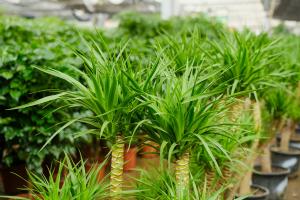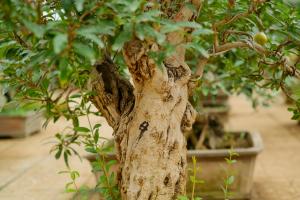Are Dragon Tree Plants Poisonous to Dogs?
Dragon Tree plants, also known as Dracaena, are popular houseplants due to their attractive foliage and low maintenance requirements. However, if you own dogs, you may be wondering if these plants are safe to keep in your home. In this article, we'll take a closer look at whether or not Dragon Tree plants are poisonous to dogs.
The Risks of Dragon Tree Plants for Dogs
Unfortunately, Dragon Tree plants can be toxic to dogs if ingested. The plant contains saponins, which are a type of chemical compound that can cause a range of symptoms in dogs, including gastrointestinal upset, vomiting, loss of appetite, and depression. In more severe cases, the plant can also cause lethargy, drooling, and even liver failure.
Identifying Dragon Tree Plants
If you're unsure whether or not you have a Dragon Tree plant in your home, there are a few key characteristics to look out for. These plants typically have long, slender leaves that are green with red or yellow stripes. The leaves are often arranged in a rosette pattern and can grow up to several feet in length. Dragon Tree plants also have woody, branching stems that can grow to be quite tall.
What to Do If Your Dog Eats a Dragon Tree Plant
If you suspect that your dog has ingested a Dragon Tree plant, it's important to act quickly. The first step is to contact your veterinarian or a pet poison control center for guidance. In some cases, they may advise inducing vomiting in your dog to prevent the plant from being absorbed into their system. They may also recommend supportive care, such as administering activated charcoal or providing fluid therapy, in order to minimize the effects of the toxin.
Tips for Keeping Your Dog Safe
If you own dogs and are considering adding Dragon Tree plants to your home, it's important to take some precautions to keep them safe. One option is to simply avoid keeping these plants in your home altogether. Alternatively, you can keep the plants out of reach of your dogs by placing them on high shelves, hanging them from the ceiling, or using barriers to prevent access. It's also a good idea to train your dogs not to chew on plants or other household items, as this can help prevent accidental ingestion.
Conclusion
While Dragon Tree plants can be a beautiful addition to your home, they can pose a threat to your furry friends if ingested. If you do choose to keep these plants in your home, be sure to take precautions to keep them out of reach of your dogs, and be prepared to act quickly if you suspect that your pet has eaten any part of the plant. By staying vigilant and taking the necessary steps to keep your dogs safe, you can enjoy the beauty of these plants without putting your pets at risk.

 how many times do yo...
how many times do yo... how many planted tre...
how many planted tre... how many pine trees ...
how many pine trees ... how many pecan trees...
how many pecan trees... how many plants comp...
how many plants comp... how many plants can ...
how many plants can ... how many plants and ...
how many plants and ... how many pepper plan...
how many pepper plan...






























